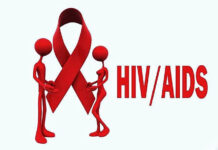Turning 30 is often a milestone that prompts reflection on where you are in life, especially when it comes to relationships and personal achievements.
While societal expectations might pressure women to be in a committed relationship by this age, being single at 30 can actually offer numerous health benefits. Embracing singlehood can lead to greater mental clarity, emotional independence, and physical well-being.
This period of life can be a time of self-discovery and personal growth, free from the compromises that come with a partnership.
Understanding how singlehood can positively impact your health helps to challenge societal norms and highlights the advantages of living a fulfilling, independent life.
Mental Health: Being single often means fewer daily stresses related to a partner, leading to lower anxiety levels. It also gives you time to understand yourself better and build mental strength by managing life on your own.
Emotional Health: Single women can develop emotional independence, learning to rely on themselves for support. This can boost self-confidence and provide a chance to focus on personal goals and passions. Plus, having more time for friends and family can enhance emotional well-being.

Physical Health: Without the demands of a relationship, you might find more time for exercise and healthy eating. Single life can also lead to better sleep since you’re not adjusting to someone else’s schedule. Some studies suggest that single people might even have a lower risk of heart disease due to reduced stress.
Facing Society’s Views: Society sometimes views being single as a problem, but it’s important to see it as a personal choice that can be fulfilling. Embrace the freedom to focus on your personal growth and join supportive communities that celebrate singlehood.
So, if being single at 30 brings so many health benefits, why should we let societal pressures dictate our happiness?




